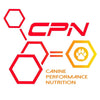Optimal prenatal nutrition lays the groundwork for healthy puppies, stronger maternal health, and smoother whelping. While balanced diets form the foundation, strategic supplementation with prenatal vitamins for dogs—especially those rich in omega-3 fatty acids—ensures canine mothers receive the specific nutrients vital for fetal development and postnatal vitality. This guide outlines evidence-based benefits of omega-3, explores key growth supplements for dogs, and provides professional recommendations to give expectant moms and their litters the strongest start possible.
Why Prenatal Nutrition Matters in Dogs
During pregnancy, a mother dog’s nutrient demands increase dramatically to support:
- Fetal organogenesis, skeletal formation, and neural development
- Adequate milk production for lactation
- Maternal health maintenance to prevent depletion of nutrient stores
Inadequate micronutrients can lead to low birth weight, weak puppies, and maternal complications such as eclampsia. Prenatal supplementation bridges gaps in even the highest-quality diets, ensuring optimal outcomes for both dam and pups.
Omega-3 Fatty Acids: Cornerstone of Prenatal Canine Health
Benefits of Omega-3 for Canine Growth
- Neurodevelopment & Vision: DHA supports central nervous system formation and retinal development in utero.
- Anti-inflammatory Support: EPA modulates inflammatory pathways, reducing risk of preterm labor and promoting smoother deliveries.
- Immune System Maturation: Essential fatty acids help program the puppy’s immune responses, improving resilience to infections post-whelping.
Choosing the Best Omega-3 for Dogs
- Purity & Source: Opt for molecularly distilled fish oil or algal DHA free from heavy metals and PCBs.
- Concentration Ratios: Look for formulas with a combined EPA/DHA ratio of at least 600 mg per 1 tsp for therapeutic effect.
- Bioavailability: Triglyceride or phospholipid forms offer superior absorption compared to ethyl esters.
Key Prenatal Vitamins and Growth Supplements for Dogs
Beyond omega-3, comprehensive prenatal support requires targeted vitamins and minerals:
- Folic Acid & B-Complex Vitamins: Crucial for DNA synthesis and red blood cell formation in both dam and puppies.
- Calcium & Phosphorus: Supports fetal skeletal mineralization and prevents maternal hypocalcemia.
- Iron & Copper: Prevents anemia, supports hemoglobin formation, and assists connective tissue development.
- Vitamin E & Selenium: Antioxidant duo that protects against oxidative stress, promoting healthier placental function.
- Choline: Vital for cell membrane integrity and brain development.
High-quality dogs prenatal vitamins blend these nutrients in balanced ratios that align with gestational needs, avoiding excessive levels that can be harmful.
Clinical Insights: Timing and Dosage
- Onset of Supplementation: Begin prenatal vitamins 2–4 weeks before planned breeding to build maternal stores.
- Gestation Period: Continue through the entire ~63-day gestation, adjusting calcium upward in the final trimester to 1.5–2 times normal maintenance levels.
- Dose Guidelines: Follow manufacturer recommendations based on body weight. For example, a 20 kg dam may require 1 capsule of a veterinary-formulated prenatal vitamin plus ½ tsp of concentrated fish oil daily.
Integrating Supplements with Diet and Veterinary Care
Prenatal supplementation should complement a premium, AAFCO-approved gestation formula. Regular veterinary check-ups, weight monitoring, and blood work help tailor nutrient levels and detect any deficiencies early. Adjust supplement regimens under professional guidance, especially for breeds prone to gestational complications (e.g., Bulldogs, Dachshunds).
Premium Prenatal Formula
For a scientifically balanced approach, K9 Performance’s Structure Prenatal Vitamins for Dogs combines targeted B-complex, antioxidants, minerals, and high-potency omega-3 to support every stage of canine pregnancy and lactation.
Expected Outcomes and Monitoring
With consistent supplementation and diet:
- Puppies tend to be born at healthier birth weights with stronger suckling reflexes
- Dams exhibit fewer gestational disorders and maintain better body condition
- Postnatal growth rates improve, laying the foundation for lifelong vitality
Track metrics such as litter size, puppy weight gain, and maternal health scores to gauge efficacy.
FAQs
1. When should I start prenatal vitamins for my dog?
Begin 2–4 weeks before breeding to optimize maternal nutrient reserves and continue through whelping and lactation.
2. Can I use human prenatal vitamins for dogs?
No. Human formulations often have imbalanced calcium-to-phosphorus ratios and may lack species-specific bioavailability.
3. Are omega-3 supplements safe for pregnant dogs?
Yes—when sourced from purified fish oil or algae and dosed per veterinary guidelines, omega-3 is both safe and beneficial.
4. How do I know if my dog needs extra supplements?
Routine veterinary exams, blood panels, and body condition scoring reveal deficiencies and guide tailored supplementation.
5. Can prenatal supplements improve puppy cognitive development?
DHA is essential for fetal brain and retinal maturation, supporting sharper cognitive function and vision in puppies.

